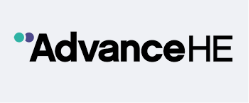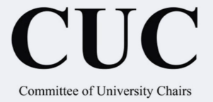In association with:




Filter resources
Events
CUC are delighted to invite UK Remuneration Committee Chairs to the CUC Hybrid Remuneration Group Meeting: CUC Remuneration Committees’ Meeting – Hot Topics for 2025.
This session promises a fantastic networking opportunity for Chairs to meet and discuss the latest trends and hot topics in education, both with peers and industry experts.
Details: Wednesday 30 April 2025, 14:00 – 17:00
Auditorium, Eversheds Sutherland, 1 Wood Street, London, EC2V 7WS.
This event will be followed by networking drinks from 17:00 p.m. to 18:30 p.m., chaired by Lindsey Doud and Janet Cooper.
You can register to attend in person or virtually. Please note: If you are unable to attend, you may nominate and register another senior independent board member to participate in your place.
Please secure your space by registering here by Wednesday, 9 April 2025
CUC are delighted to invite UK university Chairs to the CUC Spring Plenary 2025, themed “Perspectives on Higher Education Governance and the Board’s Role in Shaping New Futures.”
This event will bring together key figures in higher education to discuss governance models and the evolving roles of university boards. The event will feature keynote sessions reviewing governance models, perspectives on higher education governance, supporting workforce transformation, and the role of university boards in fundraising.
Attendees will have the opportunity to engage in focused discussions during small breakout groups. There will also be a business session with updates on the CUC Governance Review and networking opportunities throughout the day.
Details: Wednesday 21st May 2025, 11:00 – 21:00
Woburn House, London, WC1H 9HQ
A drinks reception and dinner will follow the day sessions.
Don’t miss this chance to gain valuable insights and network with peers. It will be a great networking opportunity and attract Chairs from all four nations.
Please secure your space by registering here by Thursday, 1 May 2025.
This three-day programme is designed to equip new, aspiring and developing HE governance professionals with the essential knowledge and skills needed to succeed in HE governance roles.
- Learn from World-Class Expertise: Access to an expertly designed programme led by experience higher education governance professionals
- Dedicated Support: Benefit from expert guidance and follow-up support to help you apply new knowledge.
- Gain Insider Access to Real-World Solutions: Learn from compelling case studies and the expertise of industry leaders.
Aimed at: This series is ideal for anyone looking to enhance their understanding of governance in higher education, regardless of their level of experience.
Event dates:
- Tuesday 11th February 2025, 10:00 – 16:00 (In person)
- Tuesday 18th March 2025, 10:00 – 16:00 (Online)
- Tuesday 13th May 2025, 10:00 – 16:00 (Online)
More information here
Professional Development Programmes
Aimed at University Secretaries seeking to transition from being a technically-focused, ‘compliance’ subject-matter expert, to becoming a strategically-oriented governance adviser to the Governing Council, VC and Senior Management Team.
Aimed at: University Secretaries and those with governance responsibilities.
Specifically designed for Clerks, Secretaries and staff in governance related roles in professional support teams who play a central role in the academic and corporate governance of HE institutions.
Aimed at: Clerks, Secretaries and those in governance support roles.
A Masterclass introduction to governance – starting with the fundamentals, and moving on to identify the key building blocks of a high-quality system of governance.
Aimed at: Professionals already occupying some form of governance role in their institution.
Register your interest for the 2025-26 iteration here.
Designed to address a broad range of needs across governance. While many of the events may be specifically relevant to those involved in particular aspects or roles within HE governance, anyone is welcome to attend any event.
Aimed at: Governors and governance professionals
A flexible and practical development programme for higher education staff who lead and support corporate and academic governance.
The programme includes some asynchronous study as well as presentations, opportunities for group discussions and exploration of issues, plus a dedicated cohort area for resources, ongoing discussions and problem sharing/solving. There are three core workshops and two Action Learning Sets for all participants.
Aimed at: Clerks, Secretaries and those developing their career as a governance professional.
A governance officer apprenticeship gives the opportunity to work in a governance role while studying for a foundational governance qualification accredited by the Chartered Governance Institute UK and Ireland (‘CGIUKI’). CGIUKI is the chartered professional body which sets the international qualifying standards and is dedicated to supporting governance professionals. Apprentices will learn from experienced colleagues, gain practical skills, achieve a qualification that employers want, and earn a salary at the same time.
Aimed at: A governance officer apprenticeship is a new pathway into governance for young people without a degree or for career changers. Apprentices earn a salary and valuable work experience while achieving a qualification, which can lead to a fulfilling and lucrative journey up the career ladder in governance.
Resources
A private LinkedIn Group for governance professionals to discuss and share issues or feedback confidentially.
This list is intended to provide a forum for those working in higher education governance support to exchange views and ideas, and thereby to help to develop and disseminate best practice in these challenging times. It should be of most interest and use to governance practitioners, including clerks and secretaries, rather than governors themselves.
The Advance HE Podcast cover topics including supporting inclusive boards, the changing face of governance and more.
This Practice Note explores the range of operating models associated with the Secretary’s role; future opportunities and challenges; the influence of structures, levels of authority, role remit as a determinant of success, critical skills and responsibilities; and the relationship between the Secretary, the Governing Body Chair, and the Head of the Institution
This Practice Note is designed to help Chairs, and governing bodies tackle Harassment and Sexual Misconduct, drawing on a range of published guidance and interviews at several universities exploring current practice.
Fair and appropriate remuneration is key to the success and development of the UK’s HE sector, operating as it does in an intensively competitive global environment . To support members of governing bodies, the Higher Education Senior Staff Remuneration Code (the Remuneration Code) has been developed after wide consultation with CUC members and HE stakeholders. The Code will be reviewed every four years, in consultation with the sector.
The Higher Education Code of Governance and Self Assessment Checklist has been developed to support governing bodies deliver the highest standards of governance across their institutions. This Code’s primary audience is HE providers’ governing bodies; however, the thinking that underpins the Code can be applied by any organisation seeking to improve its governance practices.
The Code sets out the key elements that enable HE providers to demonstrate their commitment to effective audit.
Victoria Holbrook, Assistant Director Governance, Advance HE, talks to John Rushforth, Executive Secretary, CUC. In this video John discusses the common issues that new chairs face when they start in post, shares advice on how to create a healthy board culture and provides top tips to help new chairs navigate their role on the board.
The Advance HE Governor Competencies Map has been designed as a practical tool to support board members with mapping their own individual progression and development needs as well as that of the board as a whole.
The Governor Competencies Map contains sixteen core competencies across three key areas that Advance HE believe governors should seek to have within the context of higher education.
In this report, Advance HE offers evidence that diverse and inclusive governing bodies which comprise different opinions, experiences and insights can better support strategic decision-making which address the needs, interests and expectations (NIEs) of all stakeholders.
The HE Board Diversity and Inclusion Toolkit is designed to help institutions to improve the diversity and inclusivity of their governing bodies, whether as a Secretary, Chair of Governors, Governance and Nominations Committee member, or anyone interested in tackling under-representation and aiming for inclusion at the Board level in the higher education sector.
Developed in partnership with Advance HE, Perrett Laver and the University of Gloucestershire, these resources expand on the HE Board Diversity and Inclusion Toolkit in order to support the tackling under-representation the Board level.
This guide has been written to provide a supporting document for institutions in the induction and development of new governors or for anyone wanting to understand more about the key elements of being a governor and the governance landscape of higher education.
Governance Effectiveness Projects 2022 – 2023
Exclusive to Advance HE member institutions, the Governance Effectiveness Member Benefit Projects 2022 – 2023 are tailored to support boards with the challenges and changes they are facing. Current projects include the Supporting Inclusive Boards Programme, a series of four online workshops which will enhance and share thinking from recruitment to belonging, a project to gather information on how the changing expectations of Academic Governance are impacting Boards, and a sandpit style event exploring the Board’s Role in ESG and Sustainability Oversight.
Visit the Member Benefit page to find out more.
Andy Shenstone, Advance HE Director of Business Development and Jo Chaffer, Australia-based Key Global Associate with Advance HE, discuss key aspects in building effective governance:
- The distinguishing features of the UK higher education policy and legal context, particularly in terms of governance and how these shape institutional governance
- The trends or major themes in governance in UK universities over the last few years
- What those in governance should be paying more attention to
- Improving governance effectiveness, including motivating and encouraging people with different talents, skills and perspectives to want to join governing bodies, including examples of good practice
- Advice for leaders in shaping good governance, particularly in good governance culture
- Building trust between the Executive and the Board.
Advance HE associates David Langley and Mark Adderley discuss how executives and non-executives can contribute to the Board – and their ideas on what makes an effective Board.
This report provides an overview of the recent GuildHE survey of members on board governance.
